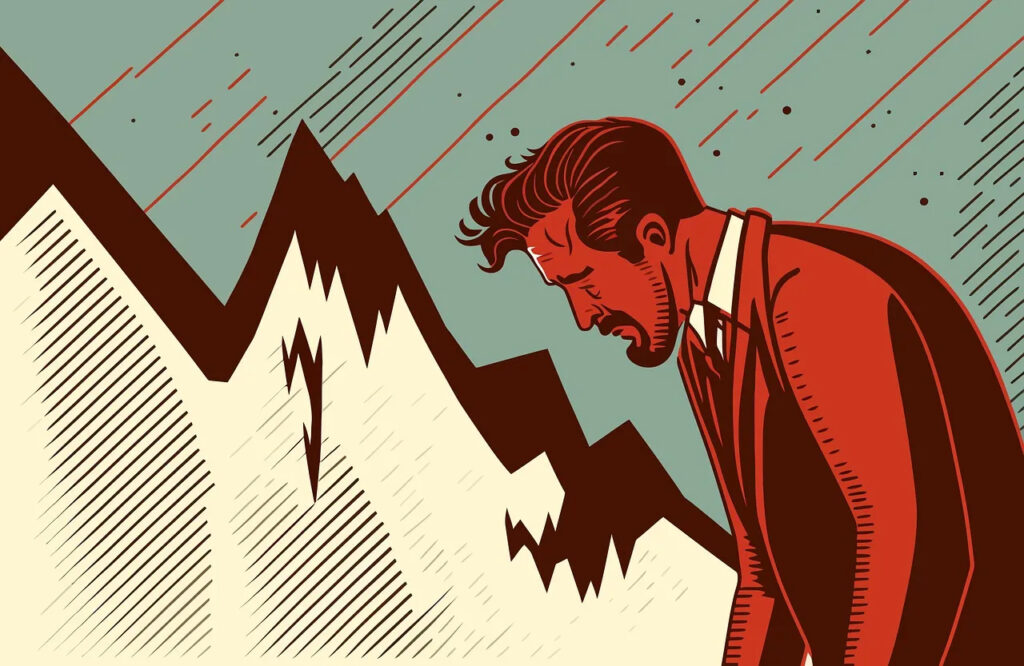
(Written by Michael Snyder. Originally published here, republished with permission.)
Is the financial chaos that is currently happening in China a harbinger of things to come here in the United States? Today, the global economy is more interconnected than ever before, and economic warning signs have been popping up all over the planet in recent weeks. Of course the U.S. has certainly not been an exception. Employers are throwing workers out into the streets in very large numbers, and we have reached a point where hunger, poverty and homelessness are all growing at extremely alarming rates. The U.S. economy has clearly entered a very troubled period, but for the moment U.S. stock prices are still stable. Unfortunately, the same cannot be said about Chinese stocks. In fact, Newsweek says that China’s stock market “appears to be in free fall now”…
After a rocky couple of years for the Chinese economy, the country’s stock market appears to be in free fall now, with authorities asking institutional investors not to sell stocks in an attempt to stabilize share prices as foreigners are pulling out.
Compared to 12 months ago, the FTSE China 50 index is down almost 30 percent…
The FTSE China 50 index—a real-time tradable index comprising 50 of the country’s largest and most liquid stocks—has plunged by 1.77 percent between Monday and Tuesday as part of a long-term large decline over the past six months. Compared to one year ago, the index is down by 29.24 percent.
China’s market regulators have tried to stabilize the market by imposing restrictions that stop some investors from being net sellers of equities on certain days. This strategy—with authorities offering what’s known as “window guidance” in an attempt to help the country’s stock market bounce back—was first introduced in October.
Wow.
Nearly a third of the entire value of the FTSE China 50 index has already been wiped out.
Needless to say, we have not seen a similar crash in the U.S. yet.
But many believe that one is coming.
On Tuesday, the Dow was down 231 points, but that is nothing to get excited about.
It certainly wouldn’t be a surprise to see more down days in the near future, because stock prices are way too high right now.
In fact, one expert just told CNBC that the market “looks overvalued by about 9% to 10%”…
The market looks overvalued by about 9% to 10%, according to Aswath Damodaran.
“The expectation game has turned against the market,” the professor at New York University’s Stern School of Business told CNBC’s “Closing Bell” on Tuesday.
A stock market decline of 10 percent certainly wouldn’t be the end of the world.
But what if the conflict in the Middle East evolves into a major regional war and the U.S. economy plunges into a very deep recession?
What would that do to stock prices?
Without a doubt, the U.S. economy is already heading in the wrong direction. On Tuesday, we learned that the Empire State manufacturing survey for the month of January was absolutely abysmal…
Well, no one saw that coming…
The New York Fed’s Empire State Manufacturing Survey for January crashed from -14.5 to -43.7 – the worst print in the survey’s history outside of the COVID lockdowns…
The -43.7 print was a stunning 10 standard deviations below expectations of a bounce to -5.0…
Under the hood, it was a bloodbath. New orders slumped more than 38 points to minus 49.4, the weakest since April 2020, while shipments dropped by the most since August. Worse still, the index of prices paid for materials increased to a three-month high.
Take a moment to read that again.
It isn’t every day that we see a 10 standard deviation miss.
The truth is that the U.S. economy is in far worse shape than we are being told.
At this stage, things are so bad that even Pixar is conducting mass layoffs…
Disney-owned animation studio Pixar is poised to undergo layoffs this year, TechCrunch has learned and the company confirmed. While sources at the company said the layoffs would be significant and as high as 20% — or reductions that would see Pixar’s team of 1,300 dropped to less than 1,000 over the coming months — Pixar says those numbers are too high. Rather, the studio said the number of impacted employees is still being determined due to factors like production schedules and staffing for future greenlit films.
For many more examples of the mass layoffs that are happening all over America, please see the article that I posted yesterday.
The private sector has been hemorrhaging full-time jobs, but government hiring has helped to mitigate the damage.
Of course the level of government hiring that we have been witnessing is simply not sustainable. The federal government, state governments and local governments are all drowning in debt, and so belts will need to tighten at some point.
If you can believe it, the federal government actually ran a 129 billion dollar deficit during the month of December alone…
The U.S. federal government posted a December deficit of $129 billion, up $44 billion or 52% from a year earlier as outlays rose while receipts fell from December 2022 levels that were swelled by pandemic-deferred tax payments, the U.S. Treasury Department said on Thursday.
The Treasury said that outlays for December rose 3% to $559 billion, a December record, partly as a result of higher Social Security outlays and interest on the public debt. Receipts for the month fell 6% to $429 billion.
What we are witnessing is insane.
129 billion dollars in a single month is madness.
But they are just going to keep borrowing and spending until everything completely crashes.
We really are in the endgame.
Our leaders are going to try to keep the party going for as long as they possibly can, but it won’t be too long before the lights are finally turned off for good.








